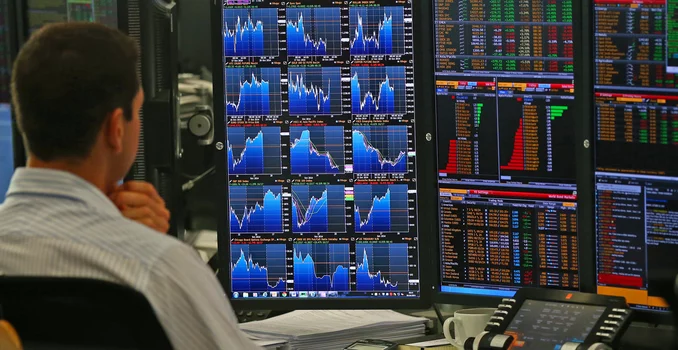
The global market landscape is ever-evolving, and with the recent rise in geopolitical tensions, we’re witnessing a consequential re-entry of volatility into the equation. Here’s a closer analysis of how these geopolitical events impact the financial world and why understanding market volatility is essential for investors.
Understanding Market Volatility:
Market volatility represents the frequency and magnitude of price movements in stocks, bonds, commodities, and other financial instruments. While a calm market sees stable prices, a volatile market is characterized by frequent and significant price swings.
The Catalyst: Geopolitical Tensions:
From trade wars to territorial disputes, geopolitical events can profoundly influence global markets. Recent tensions between nations have become a significant concern for investors, leading to increased uncertainty and market fluctuations.
Google AdSense High CPC Keywords:
To provide a clear insight into the issue, we’ll delve into popular Google AdSense high CPC (Cost-Per-Click) keywords like “investment strategies,” “financial markets,” and “geopolitical risks.” These keywords not only enhance online visibility but also demonstrate the relevance of the topic at hand.
The Domino Effect:
When geopolitical events transpire, their repercussions aren’t limited to the countries involved. These incidents can disrupt global trade routes, impact international partnerships, and alter the demand-supply equilibrium, leading to a domino effect on global markets.
Safe Havens in Times of Uncertainty:
In volatile situations, investors often seek safe havens like gold, government bonds, and stable currencies. These assets are perceived to retain or even gain value during economic downturns or geopolitical crises.
Emerging Markets & Geopolitical Risks:
Emerging markets, often more vulnerable to external shocks, can experience heightened volatility due to geopolitical disturbances. It’s essential to monitor developments and adjust investment strategies accordingly.
Strategies for Investors:
In such unpredictable times, diversification remains a key tactic. Spreading investments across various assets and geographies can help minimize risks and capitalize on potential opportunities.
Technological Influence:
In today’s interconnected world, technological platforms like trading apps and financial news websites enable real-time monitoring of events. Such platforms, associated with keywords like “online trading” or “real-time financial news,” play a pivotal role in shaping investor reactions.
Potential Long-Term Impacts:
While markets often react immediately to geopolitical events, the long-term consequences can be more subtle yet profound. They may reshape trade alliances, redefine economic partnerships, or lead to paradigm shifts in global commerce.
Hedging Against Volatility:
Financial instruments like options and futures allow investors to hedge against potential losses, providing a buffer against sharp market downturns.
Consumer Sentiment & Spending:
Volatility doesn’t only impact institutional investors. Uncertain times can influence consumer confidence, leading to reduced spending, which can further influence economic growth.
The Role of Central Banks:
Central banks around the world monitor geopolitical events closely. Their policies, like adjusting interest rates or implementing quantitative easing, aim to stabilize economies and keep inflation in check during turbulent times.
Environmental Considerations:
Geopolitical tensions can also impact global environmental agreements and initiatives. This can further affect industries reliant on such agreements, like renewable energy sectors.
The Importance of Staying Informed:
For investors and the general public, staying updated with global events is crucial. Awareness enables proactive decision-making, helping individuals navigate through financial turbulence.
Looking Ahead:
While it’s challenging to predict the exact trajectory of markets amidst geopolitical tensions, being prepared and adaptable is the key. Investors should continually review their strategies, consult financial experts, and be ready to make necessary adjustments.
In conclusion, as geopolitical tensions continue to shape the global market landscape, understanding the dynamics of volatility becomes paramount. Through proactive measures, informed decisions, and a keen eye on global events, investors can navigate these uncertain waters with greater confidence.